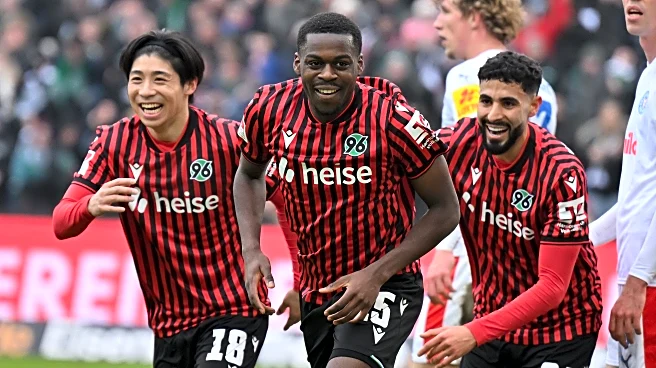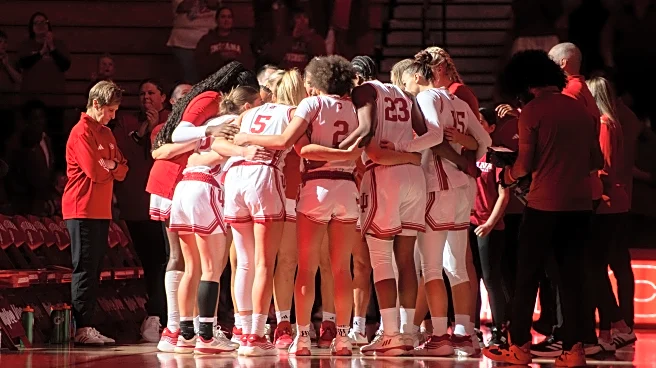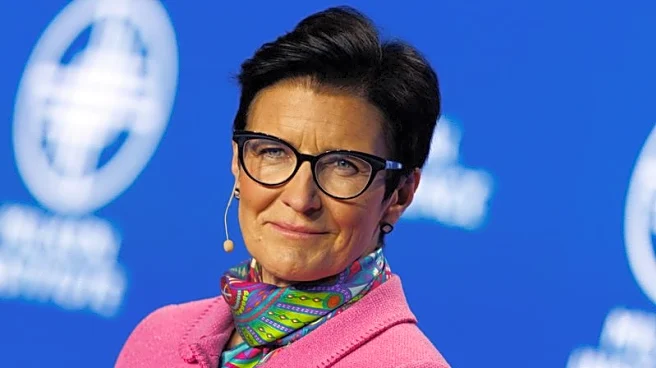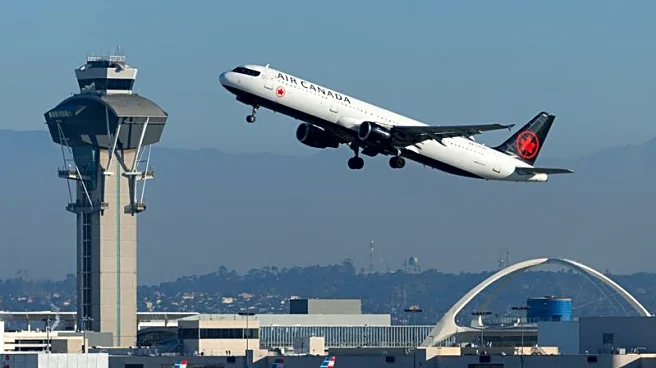What's Happening?
Italy secured a decisive 5-0 victory against Estonia in a FIFA World Cup qualifier, marking a successful start for coach Gennaro Gattuso. Despite a scoreless first half, Italy dominated possession and broke through in the second half with five unanswered goals. Key contributions came from Inter Milan players Alessandro Bastoni, Nicolo Barella, and Federico Dimarco. Bastoni, a defender, scored the final goal in stoppage time, showcasing his leadership at the back. Barella controlled the midfield alongside Sandro Tonali, while Dimarco's proactive play helped maintain pressure on Estonia throughout the match.
Why It's Important?
The performance of Inter Milan players in the national team highlights their significant roles and contributions, potentially boosting their profiles and market value. This victory also sets a positive tone for Italy's World Cup qualifying campaign under Gattuso's leadership. The success of these players could influence club dynamics and strategies, as their international experience and performance may lead to increased responsibilities and expectations at Inter Milan. Additionally, Italy's strong showing reinforces their competitive stance in international football, potentially impacting team morale and fan support.
What's Next?
Italy will continue their World Cup qualifying campaign, aiming to maintain their momentum and secure a spot in the tournament. The performance of Inter Milan players may lead to further opportunities and increased roles in upcoming matches. Gattuso's strategy and player selections will be closely watched as Italy progresses through the qualifiers. The impact of this victory on team dynamics and player confidence could influence future match outcomes and Italy's standing in the international football community.
Beyond the Headlines
The integration of club players into national teams can have broader implications for player development and international relations within football. The success of Inter Milan players in Italy's national team may encourage other clubs to foster talent that can perform at both domestic and international levels. This dynamic can lead to increased collaboration between clubs and national teams, enhancing the overall quality and competitiveness of football.










